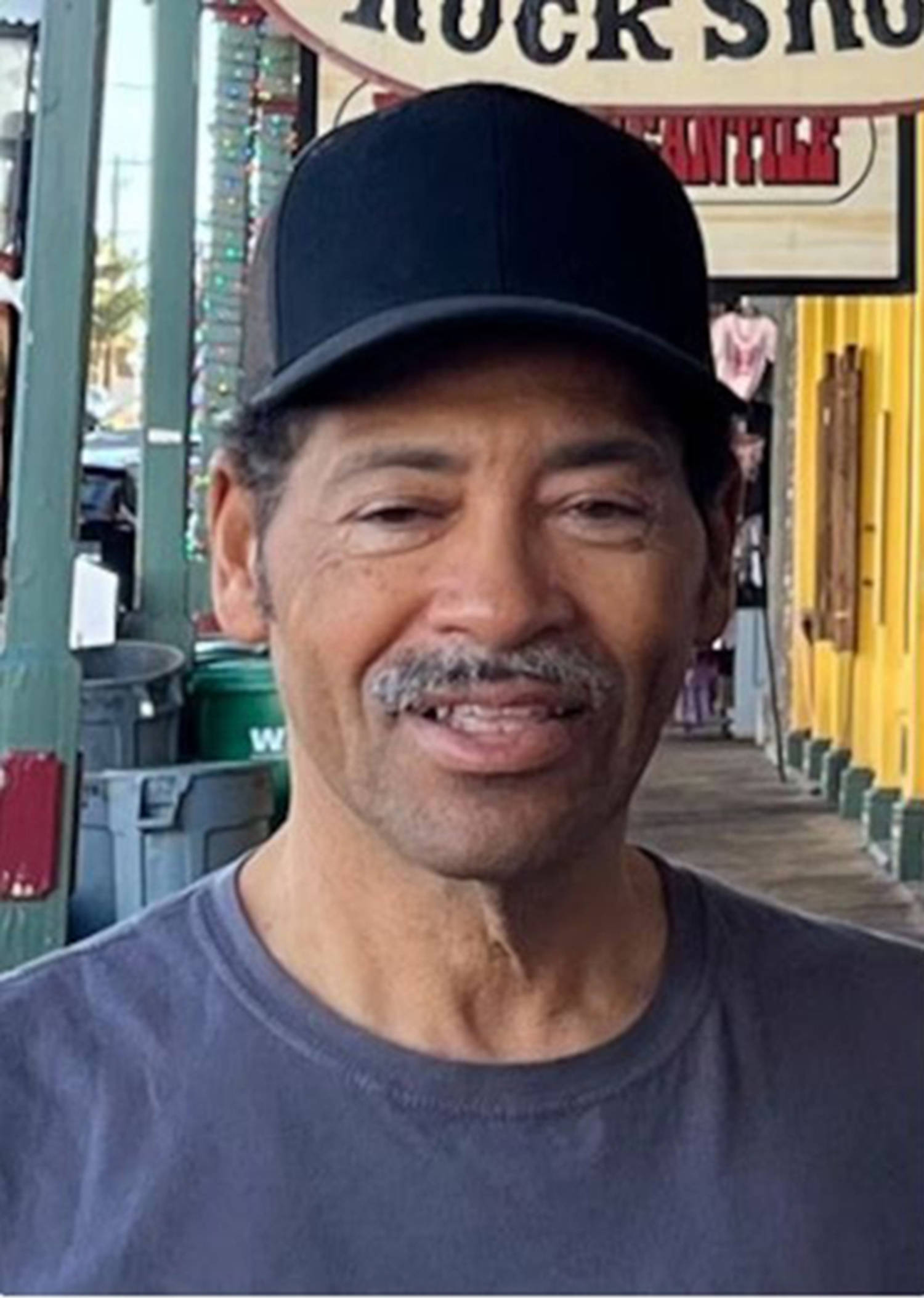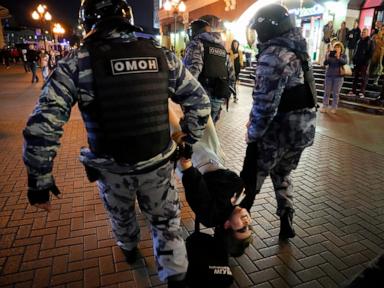Government must confront the civil rights challenges of facial recognition

Artificial intelligence, while present in virtually every aspect of our daily lives, is far from perfect. That matters especially when its application impacts civil rights.
Take, for example, facial recognition technology, a type of AI that can scan massive datasets of facial images to determine whether two images belong to the same person. The U.S. government, realizing this enormous power, has adopted, deployed and facilitated the proliferation of facial recognition across law enforcement, homeland security and even public housing.
Facial recognition shows us that when complex and evolving technology such as AI is deployed in the real world, as opposed to in a laboratory, technological flaws that might otherwise be interesting data points in a simulation can undermine the basic freedoms of the American people.
At my request, the U.S. Commission on Civil Rights conducted a monthslong investigation into the federal government’s use of facial recognition within the Departments of Justice, Homeland Security and Housing and Urban Development. Then we published a bipartisan report last fall acknowledging the technology’s utility in solving crimes, combating terror threats and locating missing children.
However, the report also highlights the grave risks that facial recognition poses to the civil rights of all Americans. The report is significant not just for its contributions to an under-studied field, but also for the rare consensus it garnered at an agency evenly divided among Democratic and Republican appointees. This shows that the civil rights concerns about AI are not partisan.
Facial recognition technology is a system of interdependent components trained largely on images of white people, resulting in models that are worse at accurately recognizing non-white people in real-world settings. The facial recognition system can still interpret data from underrepresented groups, but with higher error rates.
The camera technology that facial recognition algorithms rely upon may capture drastically different images of the same person’s skin tone depending on the camera quality, camera positioning and the environment's lighting. A facial recognition technology algorithm may then return a false positive match, meaning the system thinks two different people are the same, or a false negative hit, meaning the system thinks the same person is actually two different individuals.
In other words, facial recognition has flaws that are biased against and disproportionately harm people of color. This is also true for women and seniors.
It is critical to fully understand how these flaws in technology translate to real-world consequences. If law enforcement agencies rely on facial recognition that is not properly tested, and if they do not train agents in the proper use of facial recognition and disclose the use of facial recognition to defendants in criminal cases, a false positive match can ruin an innocent person’s life.
Michigan citizen Robert Williams experienced this firsthand when he was wrongfully arrested in front of his family for the robbery of a Shinola store in Detroit after two blurry surveillance photos became the basis for a mismatched facial recognition result.
His case involved omissions of facial recognition use in the arrest warrant and an unreliable photo lineup procedure. It led to an unprecedented settlement by the Detroit Police Department requiring training on the risks of facial recognition, especially when used on people of color, and a significant rollback of the department’s reliance on the technology.
But imagine the direct and collateral consequences for Williams and his loved ones if this exculpatory evidence had never emerged and he had been convicted and sentenced — or, more realistically, coerced under the weight of the criminal legal system to plead guilty.
A recent investigation by the Washington Post revealed that police departments across America frequently disregard their own internal policies intended to prevent these inaccurate identifications.
This is particularly alarming given the testimony of Assistant Police Chief Armondo Aguilar, who told the commission last spring that the ubiquitous Clearview AI software used by the Miami Police Department is only accurate 40 percent of the time prior to the human-level fact-check required by departmental guidelines. Even then, human reviewers can fall victim to “automation bias,” the tendency to favor suggestions from automated systems and avoid contradictory information.
Facial recognition technology isn’t just problematic in law enforcement. If public housing authorities use facial recognition to surveil their tenants, whose incomes afford them no meaningful alternative to such housing, those tenants must choose between housing and privacy, along with the risk of unfair consequences like eviction and the denial of entry due to false positive and false negative results.
Issues like these were central to a 2023 Washington Post investigation into the use of surveillance systems by public housing authorities, many equipped with facial recognition capabilities.
Facial recognition technology testing, training and deployment guardrails, as they exist today, are neither holistic nor standardized enough to account for the complex, real-world scenarios in which governments at the federal and local levels are deploying facial recognition.
To summarize, when the federal government deploys and heavily relies upon facial recognition technology in real-world scenarios without proper testing and oversight, such as in the form of a “human-in-the-loop” to independently review search results, it can become the basis for false arrests, wrongful convictions and unfair housing practices, to say nothing of the privacy risks inherent in mass surveillance.
As AI proliferates due to its usefulness, we must be mindful of its ever-growing risks to civil rights and civil liberties. Several key recommendations to the federal government contained in the commission’s report offer a framework for how governments at the federal and local levels, and even private actors, can guard against such harms.
First, facial recognition testing and training should be mandatory, standardized and involve real-world scenarios.
Second, public transparency in the use of facial recognition by a department or agency should be prioritized, such as posting use policies on their websites and informing criminal defendants when facial recognition has been used against them.
Third, individuals harmed by the misuse or abuse of facial recognition technology should have a statutory mechanism for redress of any harm suffered.
This moment in history presents a crucial opportunity for the U.S. government to meet this moment of immense technological potential with due consideration and protection for the civil rights and civil liberties of every American.
Mondaire Jones is a member of the U.S. Commission on Civil Rights and formerly a Democratic U.S. representative for New York’s 17th Congressional District serving on the House Judiciary and Ethics committees.
Topics
-

Talks to form far-right-led coalition government in Austria collapse
Disagreements over key posts and issues like migration mean snap election is likely, with far-right Freedom party ahead in polls. Europe live – latest updates Austria’s Freedom party (FPÖ) has ...The Guardian - 3h -
Austrian far-right leader Herbert Kickl says talks to form a new coalition government have collapsed
Austrian far-right leader Herbert Kickl says talks to form a new coalition government have collapsedABC News - 4h -

Austrian far-right leader's efforts to form a new government collapse
Austrian far-right leader Herbert Kickl says his talks on forming a coalition government with a conservative party have collapsedABC News - 4h -

Woman confronted PhD student over alleged rape
The alleged victim told the PhD student that she was unconscious when he had sex with her.BBC News - 2d -
Upcoming California Super Bowls Confront Climate Risks
New Orleans’ Super Bowl has wrapped—the Philadelphia Eagles denied the Chiefs their third straight NFL title in a 40-22 win—and the NFL’s big game moves back out west, with the league’s next two ...Yahoo Sports - 2d -

Civilization VII VR Lets You Build Your Cities On A Virtual Reality Tabletop
2K and Firaxis Games are gearing up to add a whole new reality to the Civilization experience. Today, during the Civ World Summit livestream on the official Firaxis Games Twitch channel, the ...GameSpot - 4d -

The families of L.A. wildfire victims confront the failures that prevented escape
One month after the Los Angeles wildfires, the public and California’s government are being forced to confront weaknesses in their approach to disasters.NBC News - 4d -
‘They came to the wrong neighborhood’: Residents confront demonstrators with Nazi flags near Cincinnati
A group of nearly a dozen people displaying swastika flags on an Interstate 75 overpass near Cincinnati, Ohio, left after being confronted by angry residents.NBC News - 4d -

US aid cutoff poses new challenges to rights groups in Russia and Belarus
Rights groups, activists and independent media in Russia and Belarus endured increased government scrutiny, repressive laws and even were shut down and forced to operate from exile abroadABC News - 5d
More from The Hill
-

'Centrist dads' (and moms) are the quiet leaders we need
The attacks on centrism stem from a fundamental misreading of history and politics.The Hill - 37m -

Growth in Russian military spending outpaces all European countries combined: Think tank
The rate of growth for Russia's military spending outpaced all other European countries combined in 2024 as its invasion of Ukraine has persisted for nearly three years, according to an analysis ...The Hill - 43m -

Trump secures release of journalist jailed in Belarus
President Trump has secured the release of a journalist jailed in Belarus, a development that follows Russia’s exchange of a jailed American as a confidence-building measure leading toward ...The Hill - 45m -

Musk calls for ‘wave of judicial impeachments’
Tech billionaire Elon Musk on Wednesday called for judges to be impeached for checking the power of the Trump administration, as some of its efforts to overhaul the government get bogged down in ...The Hill - 57m -

Farah Griffin: Trump 'giving himself distance' by putting Musk in charge of massive cuts
Former White House staffer Alyssa Farah Griffin said President Trump is “giving himself distance” by placing Elon Musk in charge of controversial cuts to federal spending at various agencies. ...The Hill - 1h
More in Politics
-

'Centrist dads' (and moms) are the quiet leaders we need
The attacks on centrism stem from a fundamental misreading of history and politics.The Hill - 37m -

Growth in Russian military spending outpaces all European countries combined: Think tank
The rate of growth for Russia's military spending outpaced all other European countries combined in 2024 as its invasion of Ukraine has persisted for nearly three years, according to an analysis ...The Hill - 43m -

Trump secures release of journalist jailed in Belarus
President Trump has secured the release of a journalist jailed in Belarus, a development that follows Russia’s exchange of a jailed American as a confidence-building measure leading toward ...The Hill - 45m -

Fired inspectors general sue Trump over their 'unlawful' termination
Eight inspectors general who were fired by Trump filed a lawsuit Wednesday charging their terminations were unlawful and seeking their immediate reinstatement.NBC News - 49m -

American citizen among 3 detainees released from Belarus
An American citizen is one of three detainees released by Belarus following negotiations with envoys from the Trump administration. The identity of the American detainee has not yet been released.NBC News - 50m
